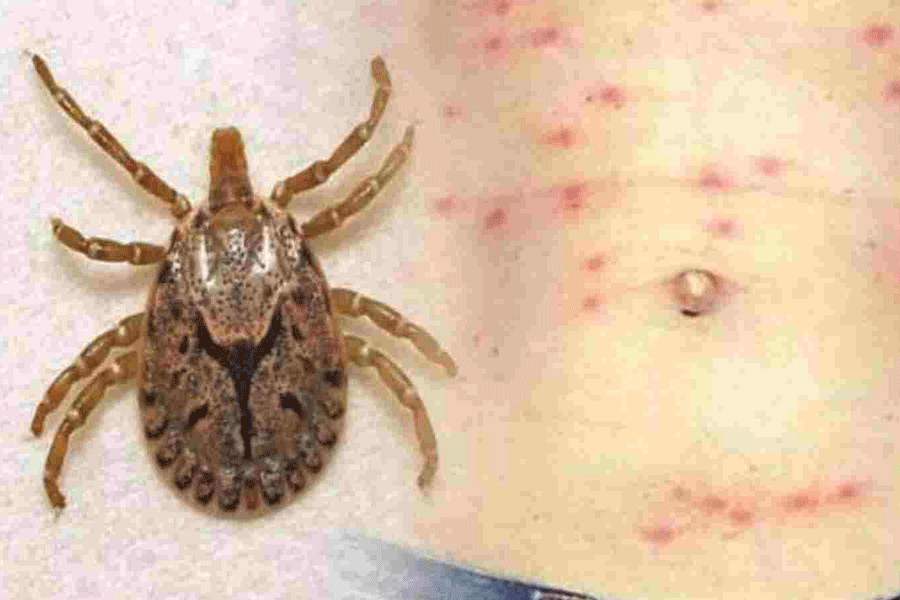Scrub typhus, a mite-borne bacterial infection, may be a major yet under-recognised cause of fever-related hospitalisations in India, researchers have cautioned after estimating that 10 per cent of rural populations in Tamil Nadu are affected annually.
The researchers from the Christian Medical College (CMC), Vellore, and the London School of Hygiene and Tropical Medicine (LSHTM) who tracked 32,000 people in 37 Tamil Nadu villages over two years have found that nearly 10 per cent were infected annually, although most had no symptoms.
But among those who were infected, 8 per cent to 15 per cent developed fever which often required hospital care, the researchers said, reporting their study’s findings on Wednesday in the New England Journal of Medicine.
Scrub typhus is a potentially life-threatening infection caused by a bacteria that is spread to humans through the bites of infected larval mites known as chiggers that are found on grass, plant litter, and in bare soil across rural areas of Asia.
Typical symptoms include fever, headache, body ache and rash, and the standard treatment includes the use of the antibiotics doxycycline and azithromycin. When untreated, severe illness can progress to acute respiratory distress, shock, meningitis, or kidney failure.
“After Covid, scrub typhus was the most important cause of fever in our study, accounting for almost 30 per cent of fever hospitalisations,” said Carol Devamani, lead author and community medicine physician at the CMC. “Despite cases being common and treatable, scrub typhus is often overlooked as a possible cause when patients present with fever. Diagnostic tests are available at major hospitals but not in the community,” she said in a media release issued by the LSHTM.
The research team visited households every six to eight weeks between August 2020 and July 2022, collecting blood samples and recording symptoms of illness, and tested blood samples taken from people with fever for scrub typhus.
The study recorded five deaths from scrub typhus. “While five cases in our study population died of scrub typhus, we did not record any deaths from malaria, dengue, or typhoid fever which are usually thought of as the main causes of severe fever in India,” said Wolf-Peter Schmidt, the principal investigator for the study at the LSHTM.
Over the two years, the researchers also found a high incidence of both symptomatic and asymptomatic infections, with some people becoming infected twice. “It is unclear why some infections become severe or even life-threatening,” Schmidt said in the media release.
An independent study by scientists with the Indian Council of Medical Research (ICMR) had last month revealed a rich genetic diversity of Orientia tsutsugamushi, the bacteria that causes scrub typhus in and around Thanjavur district in Tamil Nadu.
The study by the ICMR Vector Control Research Centre, Madurai, had also identified a novel genotype of the bacteria, prompting the scientists to call for more research on understanding the mechanisms of its spread and its impact on the illness.
Last year, community medicine physicians at the Bangalore Baptist Hospital in Karnataka called for intensified surveillance after they found evidence of previous scrub typhus infection in nine per cent of 146 people without any symptoms.










